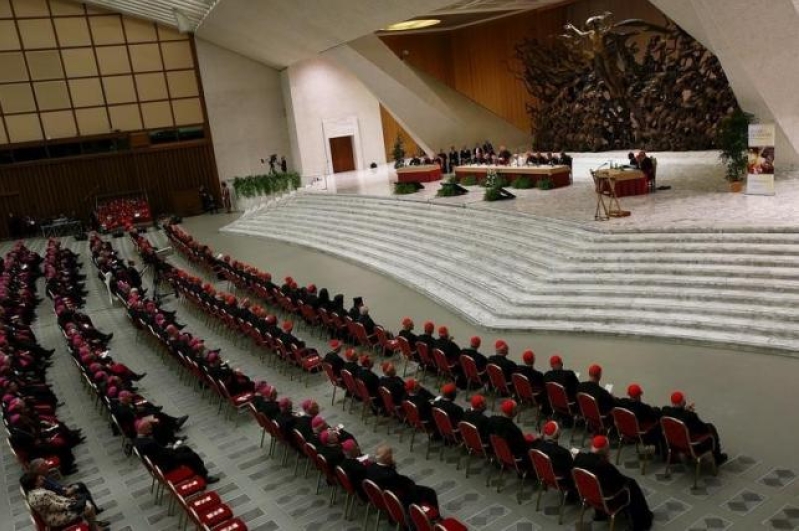
Roman Catholic bishops debating family issues at a three-week gathering remain deeply divided on key issues such as how to minister to homosexuals and divorced couples.
Disagreements between conservatives and progressives has sometimes led to an atmosphere of conflict, increasing the risk that the meeting, known as a synod and due to end next Sunday, will end inconclusively.
The synod, which brings together more than 300 bishops, delegates and observers, is supposed to prepare a final paper of proposals for Pope Francis, who may write his own document.
But it is still unclear what kind of document will emerge, how the final voting procedure will take place and what, if anything, will be made public before it is given to the pope.
Since his election in 2013, Francis has given hope to progressives who want him to forge ahead with his vision of a more inclusive Church that concentrates on mercy rather than the strict enforcement of rigid rules they see as antiquated.
But divisions were laid bare last week by the embarrassing leak of a letter to the pontiff by 13 conservative cardinals bitterly complaining the meeting was stacked against them.
The next day, the pope took the microphone to warn against "conspiracies", which was seen as a criticism of sending a secret letter during a meeting where he had appealed for frank disagreement and open dialogue.
DIVORCE AND REMARRIAGE
One of the main points of contention is over whether the Church should change its rules regarding Catholics who have divorced and re-married civilly.
Church rules say they cannot receive communion unless they abstain from sex with their new partner because their first marriage is still valid in the eyes of the Church and they would be committing adultery.
Conservatives say the Church has no authority to change the doctrine because Jesus taught that marriage is indissoluble.
They say marriages can only be ended by annulments, rulings that they were never valid from the start because prerequisites such as psychological maturity and free will were lacking.
"When it comes down to it, I don't think too many synod fathers are going to be on the other side of Jesus on indissolubility," Cardinal George Pell of Australia told the Catholic Herald newspaper.
Others, such as German Cardinal Reinhard Marx, have argued that the decision should be based on individual cases where remarried couples who cannot get an annulment have a "sincere will" to live in the faith.
There have been conflicting versions about the atmosphere at the closed-door meetings.
Archbishop Charles Chaput of Philadelphia, an outspoken conservative, wrote in the Wall Street Journal that "anxiety about the final product (the synod document) runs high".
But Archbishop Blase Cupich of Chicago told reporters: "I don't share the anxiety at all".
Another divisive issue is just how welcoming the Church should be to homosexuals.
Cupich said divorced and remarried couples as well as homosexual couples should be invited to the synod to offer their experiences as marginalized Catholics.
"I think we need to really get to know what their life is like if we're going to accompany them," he said.
"Gay people are human beings too. They have a conscience ... I think we have to make sure that we don't exclude one group as though they are not part of the human family ... That, I think, would be a big mistake," he said.
Conservatives, including most African prelates, have said such welcoming talk would only confuse the faithful and that the Church's teaching that homosexual acts are sinful should be upheld clearly.
(Editing by Gareth Jones)







